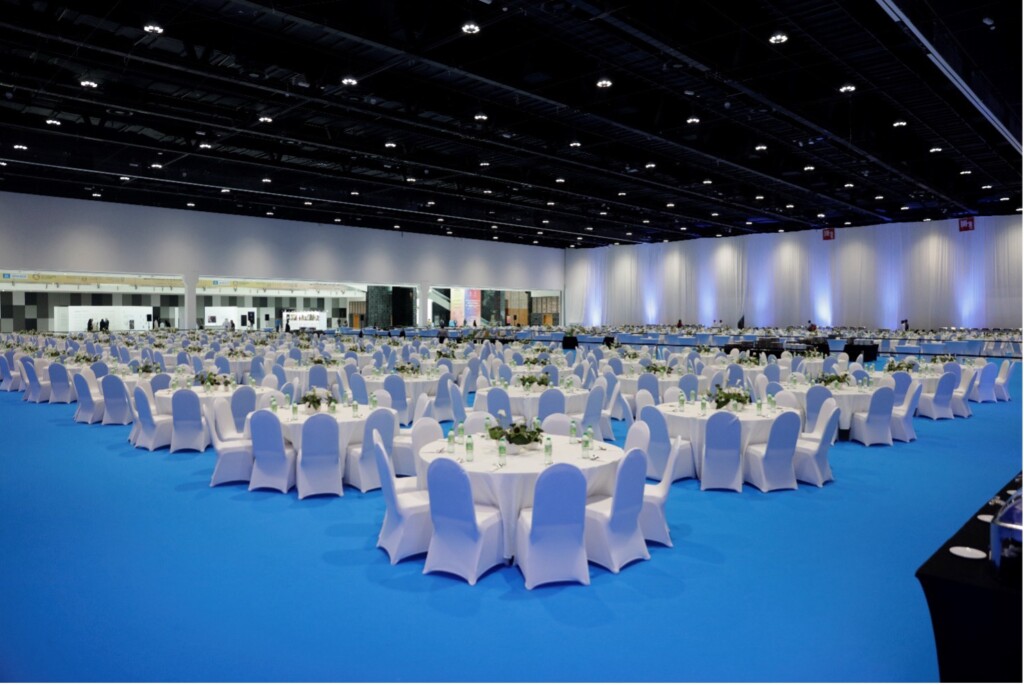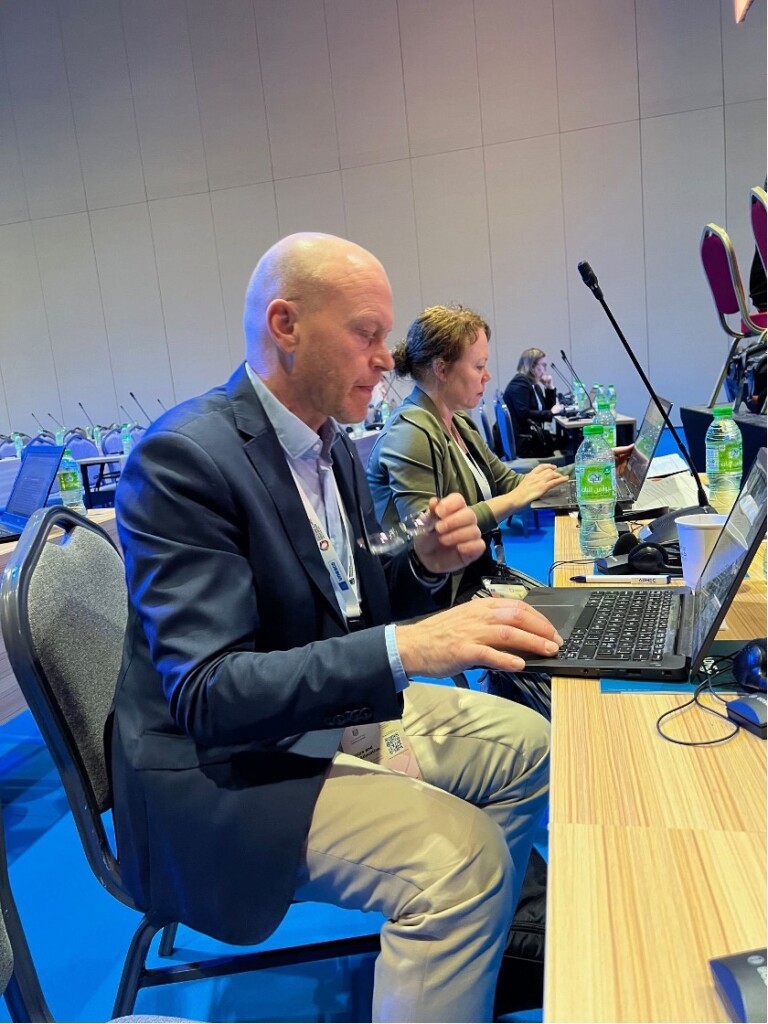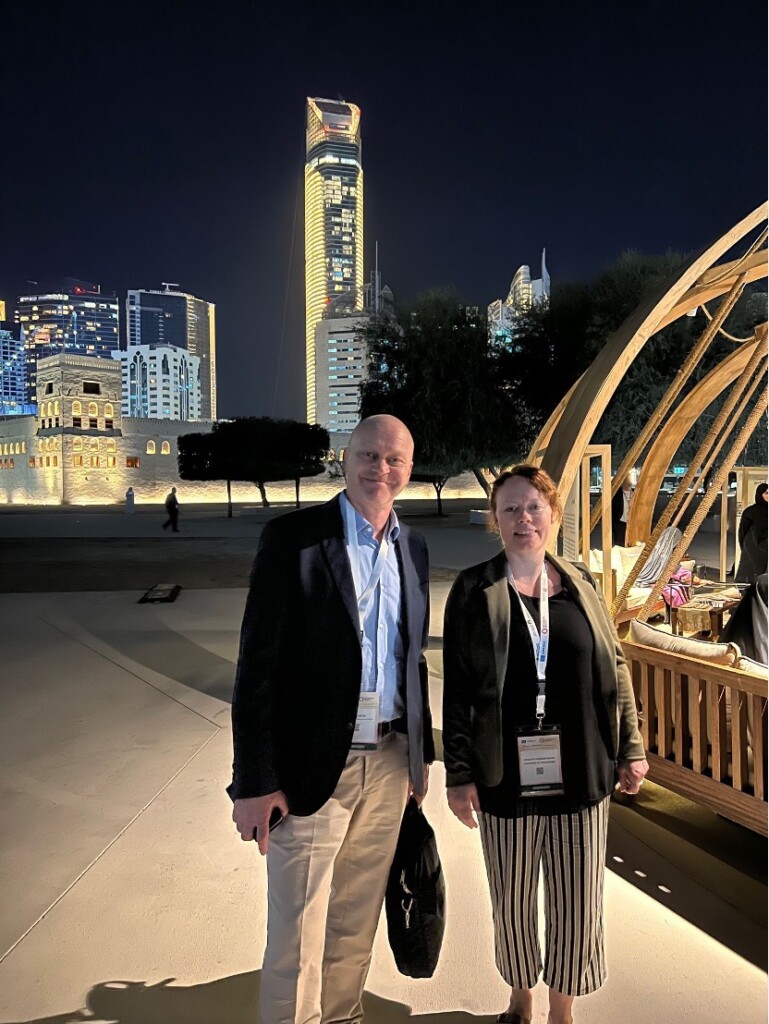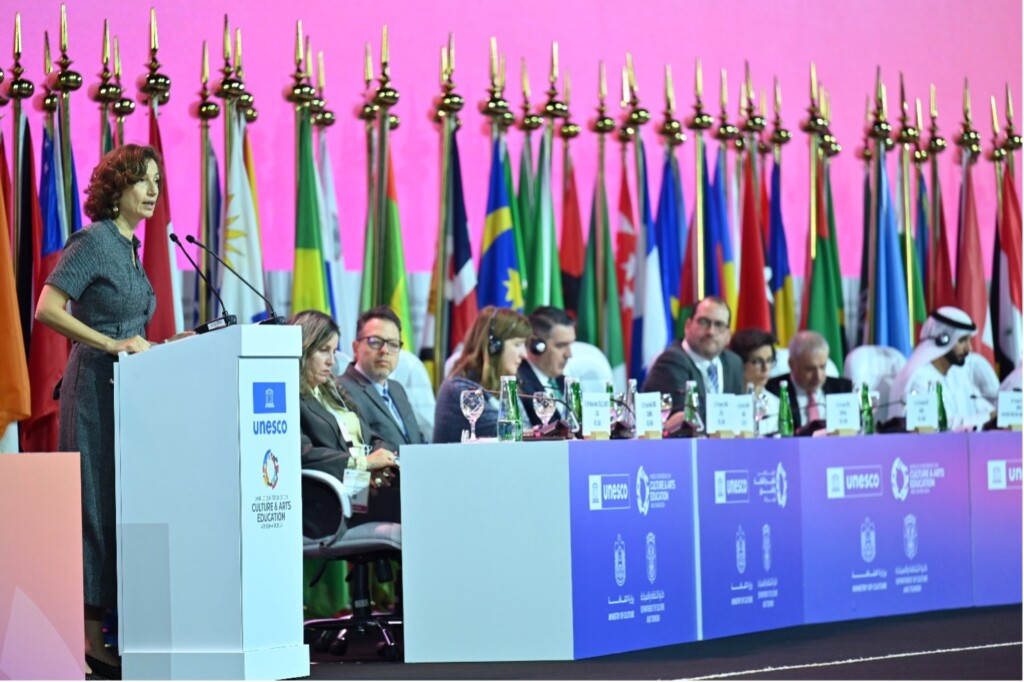I had the privilege to represent the European Network of Observatories in the Field of Arts and Cultural Education (ENO) at the UNESCO World Conference from the 13th to the 15th of February 2024 in Abu Dhabi, United Arab Emirates. ENO is an NGO which has been in an official partnership with UNESCO since 2023 (consultative status). The purpose of the conference was to convene with the Ministers of Education and Culture — 53 ministers attended from around the world, four from Europe. Finland and Iceland were the only Nordic countries that sent a delegation to the event. So, the event was not considered very highly by European nations.
The World Conference provided a space for UNESCO’s Member States and diverse actors to share their perspectives and experiences on the topic and, most importantly, adopt a Framework for Culture and Arts Education. The Framework is considered to be the guiding principle of arts and culture education policies in the future years including funding opportunities and national white papers on art and culture education.

As a member of the board of ENO, I was given the opportunity to present at the conference’s side event Sustainable development through arts, culture and education based on collaborations and partnerships across sectors. It was an event organised together with other institutions such as the Organisation of African, Caribbean and Pacific States and the European Union, the Art and Culture Education Network (ACEnet) of European Agencies for Culture and Education and ENO. A mix of organisations in a one-hour event was a bit complicated and demanded lots of extra coordination from the ENO Chair Charlotte Svendler-Nielsen. Our event had a full house of attendees and feedback was really good. One thing I don’t recommend when travelling to a live meeting is video presentations. It was not very participant-friendly to have three video greetings that even exceeded the given timeframe. But maybe live presentations were greeted even more warmly for that reason. My topic was Cultural Education Plans in Finnish Schools. After the event, we wrote a brief outcome of the side-event and later will conduct a thorough report about the outcomes.

Photo credits: Sirikit Amann
Highlights
In addition to presenting at the side-event and hearing presentation, many meaningful things happened around the conference during the coffee and lunch breaks. We had several meetings with ENO board members Svendler-Nielsen, and Susanne Keuchel who travelled in a German national delegation. We met with important stakeholders and networks such as World Alliance of Art Education (WAAE), World Dance Alliance (WDA), daCi (dance and the Child international), The International Society for Education through Art (InSEA), representative of the Porto Santo Charter, Global Education Network Europe (GENE) to name a few.
Interesting initiatives were presented both in pre-meeting in May in Paris and at the World Conference – Culture passes. In many countries a culture pass is in action. Many times, these passes are aimed at youth or young adults. My personal experience is that culture passes don’t really work, because young people need assistance with culture and art activities. Culture passes often remain active people’s joy. A pass in itself will not make those who are not used to using cultural services active users of any service without guidance and support.
Among many talks I discussed with Ronald Knox, a director of LKCA in Netherlands, about cultural passes and cultural education in secondary education (high schools and vocational schools). According to Knox, cultural pass works well in Netherlands, because young people learn to use them in schools during school time and on leisure time. When they turn 18 the culture pass remains with them as a discount card for many cultural services and events.

Photo credits: Susanne Keuchel
For the work of Association of Finnish Children’s Cultural Centers and for the whole network of children’s culture field in Finland and abroad the framework looks like a helpful tool for advocacy work and for justification of cultural education on schools. In the framework emphasis is put on children, art and cooperation between culture and schools.
UNESCO’s Director General Ms. Azoulay said in her closing address that the Framework is a turning point in culture and art education. It remains to be seen how the member states will take action in making the framework a reality.

More about the UNESCO World Conference on Culture and Art Education:
https://www.unesco.org/en/wccae2024
Aleksi Valta,
Director of the Association of Finnish Children’s Cultural Centers
Featured photo: Speakers of the ENO side-event. From left Sirikit Amann (OeAD, Austria), Aleksi Valta (Association of Finnish Children’s Cultural Centers, Finland), Susanne Keuchel (ENO board, Germany), Charlotte Svendler-Nielsen (ENO Chair, Denmark), Catherine Stilmant (PECA, Belgium).
Photo credits: ©UNESCO/Abu Dhabi, UAE

